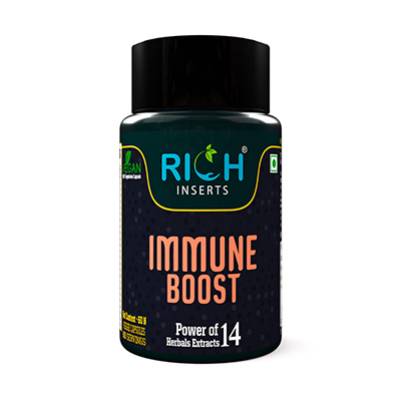Your immune system is an intricate and essential shield, working tirelessly to keep you healthy. While its effectiveness depends on a combination of factors like sleep, exercise, and stress levels, proper nutrition is at the heart of immune function. Among all nutrients, certain vitamins to boost immune system health stand out as game-changers. This guide provides an in-depth exploration of the most vital vitamins, their roles, and how to ensure you’re getting enough to optimize your immunity.
Why Are Vitamins Essential for Immune Health?
Vitamins are vital for maintaining cellular functions and supporting the immune system. They:
- Strengthen the body’s barriers, like the skin and mucosal linings.
- Enhance the production and activity of immune cells like white blood cells, T-cells, and antibodies.
- Protect cells from damage caused by free radicals.
- Regulate inflammation, ensuring the immune system doesn’t overreact or underperform.
Without adequate vitamins, your immune system can become less effective, leaving you more susceptible to illnesses.
The Most Important Vitamins to Boost Immune System
1. Vitamin C: The Immunity Powerhouse
Vitamin C has long been hailed as one of the most effective vitamins to boost immune system function. It strengthens white blood cells, which are key players in fighting off infections.
- How It Helps:
- Enhances the production of lymphocytes and phagocytes, which protect the body from harmful invaders.
- Acts as an antioxidant, protecting cells from oxidative stress.
- Top Sources: Citrus fruits, kiwi, bell peppers, papaya, and strawberries.
2. Vitamin D: The Immune Modulator
Vitamin D plays a dual role by strengthening innate immunity (your body’s first line of defense) and adaptive immunity (specific responses to pathogens).
- How It Helps:
- Activates T-cells to detect and destroy infections.
- Reduces the risk of autoimmune diseases.
- Top Sources: Sun exposure, fortified milk, salmon, mackerel, and mushrooms.
3. Vitamin A: The Barrier Builder
Vitamin A is crucial for maintaining healthy epithelial tissues, including the skin, lungs, and intestinal linings, which act as barriers to pathogens.
- How It Helps:
- Promotes the production of mucosal cells, which trap and expel harmful invaders.
- Supports the growth and differentiation of immune cells.
- Top Sources: Sweet potatoes, carrots, liver, spinach, and apricots.
4. Vitamin E: The Cellular Protector
Vitamin E is a fat-soluble antioxidant that helps protect immune cells from damage caused by free radicals.
- How It Helps:
- Enhances the function of T-cells.
- Reduces inflammation and supports overall cell health.
- Top Sources: Nuts, seeds, avocados, spinach, and sunflower oil.
5. B Vitamins: Vital for Energy and Immune Function
Several B vitamins play crucial roles in supporting the immune system:
- B6: Promotes antibody production and boosts the efficiency of white blood cells.
- B9 (Folate): Supports the formation of new cells, including immune cells.
- B12: Maintains healthy red blood cells and aids in DNA production for immune cells.
- Top Sources: Whole grains, eggs, legumes, poultry, and dark leafy greens.
6. Vitamin K: The Anti-Inflammatory Vitamin
Vitamin K isn’t as widely known for its immune-boosting properties, but it plays an important role in reducing chronic inflammation and supporting tissue health.
- How It Helps:
- Reduces inflammatory cytokine activity.
- Improves blood clotting, which aids in wound healing.
- Top Sources: Kale, spinach, broccoli, and fermented foods like natto.
Additional Nutrients to Enhance Immune Function
While vitamins to boost immune system are crucial, they work in synergy with other nutrients. Consider these:
- Zinc: Helps activate T-cells and supports wound healing. Found in shellfish, nuts, and seeds.
- Selenium: Enhances antioxidant defenses. Found in Brazil nuts, fish, and eggs.
- Magnesium: Supports energy production and immune cell activation. Found in almonds, spinach, and whole grains.
- Probiotics: Maintain gut health, which is critical for a strong immune system. Found in yogurt, kefir, and fermented vegetables.
How to Incorporate Immune-Boosting Vitamins into Your Diet
-
Start with a Balanced Plate:
- Fill half your plate with colorful vegetables and fruits.
- Include lean proteins like fish or chicken, which are rich in B vitamins.
- Add healthy fats like nuts or avocados to improve absorption of fat-soluble vitamins (A, D, E, and K).
-
Snack Smart:
- Choose vitamin-rich options like carrot sticks, citrus fruits, or a handful of almonds.
-
Fortified Foods:
- Look for fortified cereals, milk, or plant-based alternatives to boost intake of vitamin D and B12.
-
Consider Supplements (When Needed):
- For individuals with limited access to certain foods or specific deficiencies, high-quality supplements can fill the gap. Always consult a healthcare provider before starting any supplement regimen.
Lifestyle Habits to Support Immune Health
In addition to focusing on vitamins to boost immune system health, adopting these lifestyle habits can further enhance your immunity:
- Stay Active: Exercise helps circulate immune cells more effectively.
- Get Adequate Sleep: Aim for 7–9 hours nightly to allow your body to repair and regenerate.
- Hydrate Well: Water helps flush out toxins and maintain mucosal membranes.
- Practice Stress Management: Chronic stress weakens the immune system, so incorporate relaxation techniques like yoga or meditation.
Signs You May Be Lacking Essential Vitamins
Deficiencies in key vitamins can weaken your immune system. Watch for these signs:
- Low Vitamin C: Frequent colds, bleeding gums, or slow wound healing.
- Low Vitamin D: Bone pain, muscle weakness, or frequent infections.
- Low Vitamin A: Dry eyes, skin problems, or increased susceptibility to illness.
- Low Vitamin B12: Fatigue, memory issues, or tingling in extremities.
Conclusion
Maintaining a strong immune system is a combination of proper nutrition, healthy habits, and vigilance. By prioritizing vitamins to boost immune system health—through both diet and lifestyle—you can empower your body to ward off infections and thrive. Start by making small changes, such as incorporating more colorful fruits and vegetables into your meals, and watch your health transform.
